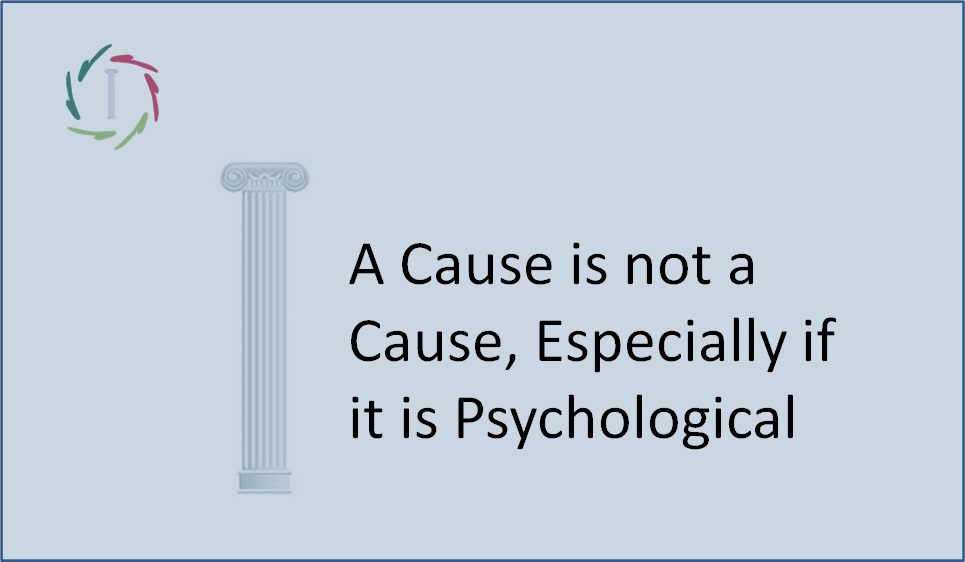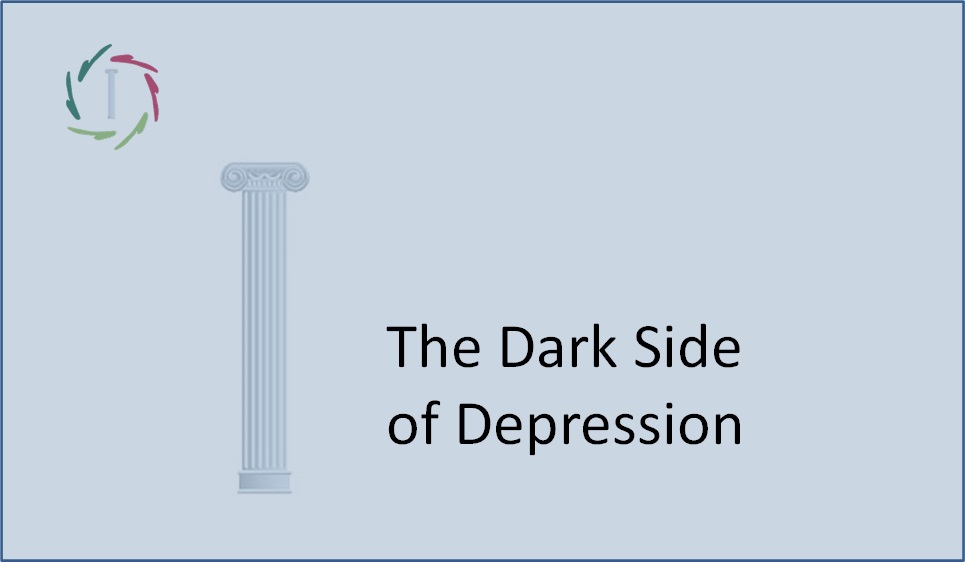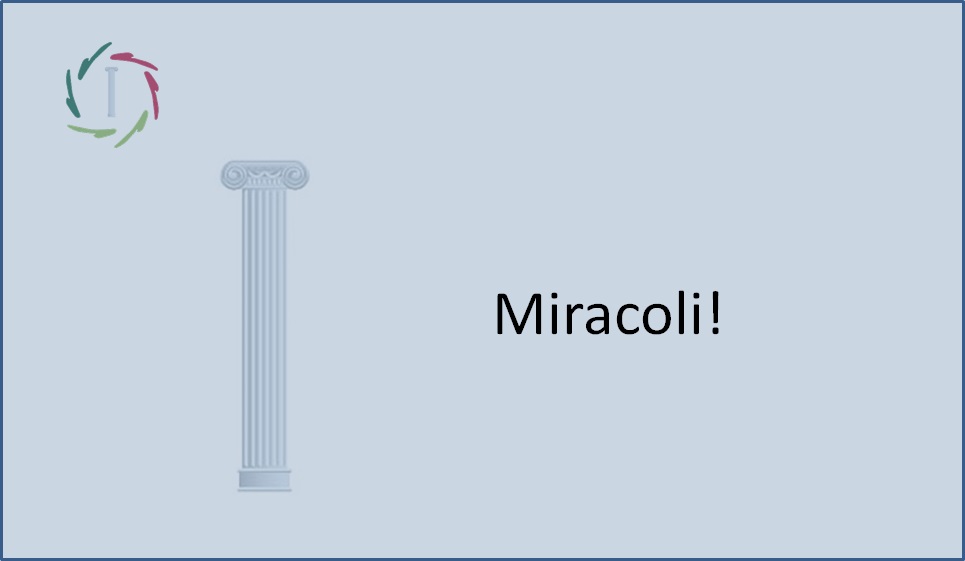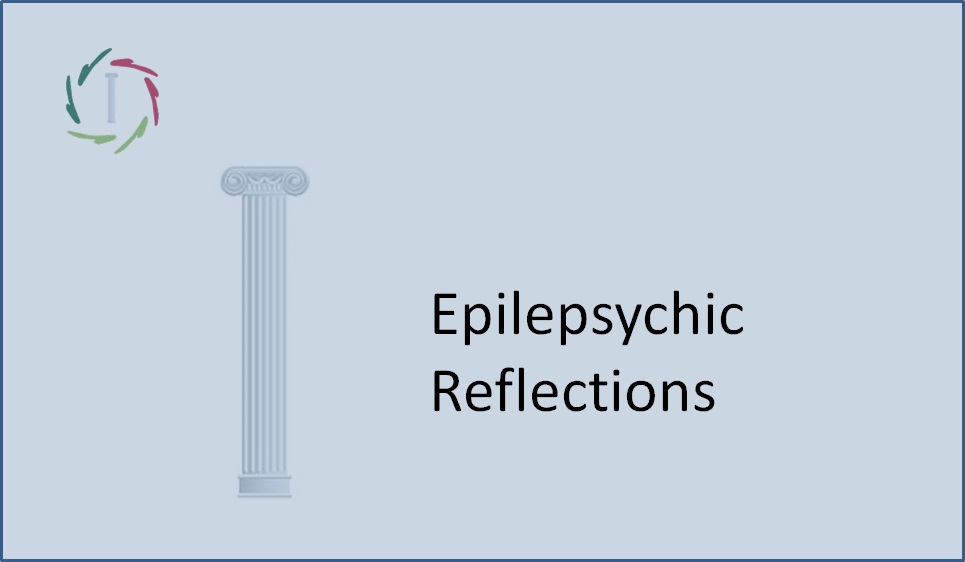41. A Cause is not a Cause, Especially if it is Psychological

If one always stops at material causes, then the psyche is being filtered out (and vice versa).
Searching for ‘the real cause’ of a phenomenon is generally human, although it is also known that, in many cases, this search is oversimplifying things. It does encourage action, though, so it is a happy middle of the road.
However, we must not forget that each cause itself also has a cause. Furthermore, several factors can always play a role in all kinds of combinations.
Important? Indeed, because a doctor mainly wants to work causally and not just get rid of the symptoms. The question then is: Causally to what extent?
The subjective factor leads to a significant bias if it is played out in the same direction again and again, as when, in a chain of causes, one always stops at a purely physically understood cause, or vice versa, always purely psychologically.
It looks like looking through red glasses. Everything becomes red.
Another person is looking through blue glasses and sees everything in blue. A third person decides in advance that everything should be green, so he is looking for green glasses.
If a reason for bias determines the bias itself, then the bias perpetuates the reason, and it will be difficult to overlook this.
What does this mean in practical terms? An example.
Causal thinking in medicine is often, with all due respect, of low quality. This is quickly noticed when one goes deeper into medical decision-making and decision support. Doctors are very uncomfortable with prevalences, sensitivity, and specificity of tests and suchlike features, not to mention Bayes, utilities, etc. In this causal swamp, returning patterns lead to quicksand.
One sees that mistakes are often made unilaterally to the detriment of psychological interpretations. A textbook example is H. Pylori as the cause of ulcers ― meaningful approach, but:
What is the cause of the proliferation of H. Pylori in the stomach?
Why is it that the geographical prevalence of some things doesn’t make sense? Why does the bacterium strike in one stomach and not in the other? Could all this have to do with the influence of psychological distress on the immune system, local blood flow, gastric acid secretion, etc.?
In any case, the following claim is entirely wrong: “We have found a stomach bacterium as the cause, and so it has nothing to do with the psyche.” However, in research and practice, one often thinks this way.
Even more at the basis: cause and science
Meaningful medical, scientific research is impossible without looking through a particular pair of glasses. Not all possible factors can be taken into account. One tries to control the confounding factors, but compromises must always be found.
For example, a compromise between efficiency and efficacy. Is a particular method of healing the cause of better health in real life or only in a laboratory setting?
Or, for example: how far do viral factors reach as a cause of an ordinary nasal cold? This depends on the extent to which psychological factors are (or are not) taken into account. If this is not considered a priori, one can miss it for a very long time. That’s not bad science. However, it does go wrong when one deals with it as if this is not the case. And that’s what often happens.
In this way, the psyche will be left out because mental aspects are more challenging to control than other factors.
One tries to operationalize the psychological factors, but that will never work as well as with a lab test or liver scan. As a result, many psychological factors with potentially opposite consequences are placed together in one concept.
It is therefore not surprising if this concept does not indicate unambiguous causal results in research.
Thus, causal psychological factors are preferably filtered out, both by choice of the filter and by the intrinsic qualities of the filtering itself, as is the case in current science.
This in itself is not proof of the (un)importance of these causal factors. At the very least, we must keep in mind the theoretical possibility that we sometimes miss something right in front of us in every way possible. How will we look back on this aspect of current reality in 100 years?


